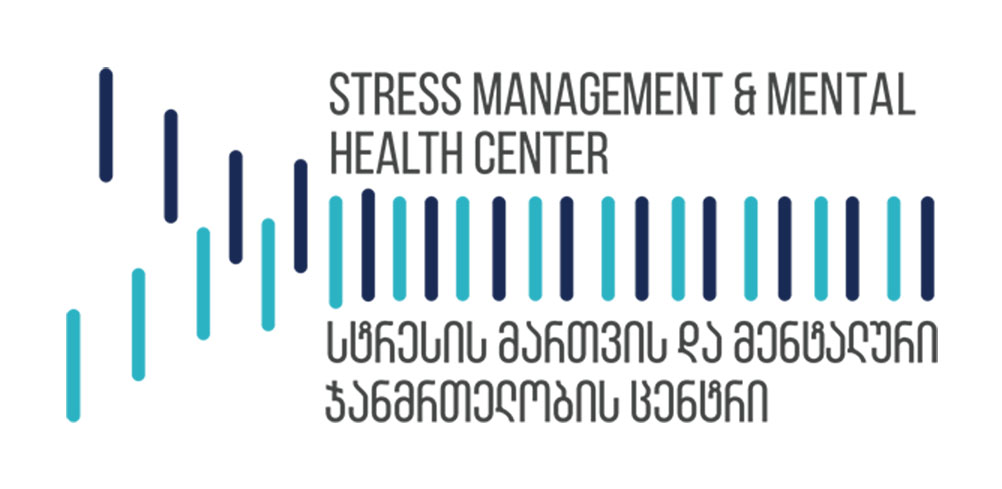+995 32 2 440 550
Besarion Jgenti 28, Tbilisi, Georgia
Open Hours
10.00 - 19.00
Stress Management & Mental Health Center
The center provides treatment and management of any kind of psychological and mental problems. The priority direction of the center is stress and stress-related problems – anxiety, depression, sleeping disorders, phobias, behavioral disorders, adaptation problems, social phobias, eating disorders and gambling addiction, Personal disorders (psychopathy), Psychotic disorders
Services
Day Clinic
Out-patient department
Individual Psychotherapy
Group psychotherapy
News
Posttraumatic Stress Disorder (PTSD) Treatment
The above psychotherapeutic method was first brought to Georgia in 2015 by Dutch specialists (Walther Van Lieshout, Rianneke van der Gaag). There were 2 stages of training. The first stage involved adoption of the method and the second stage involved analysis of the therapeutic sessions carried out by us, and assessment of their effectiveness. Since then psychologist Nana Mamulashvili has been using the method for treating post-traumatic stress disorder. The advantage of the method is its rapid efficiency (4-6 sessions). Such a short period is enough for high-quality treatment with stable results. Our center uses the most recent device (EMDR Kit 2_2017), which increases comfortability and efficiency of the method.
Below is a short definition of post-traumatic stress disorder:
PTSD is caused by excessively traumatic factors such as war, natural disasters, violence, torture, cruelty in the family. PTSD is characterized by recurring emotional memories of the traumatic event, avoidance of the situations which are associated with the traumatic situation, blaming oneself or others for what happened, recurring nightmares connected to the stressful event. Sometimes a person with PTSD might behave or feel as if the stressful event was repeating, they might experience physical reactions (e.g. Tachycardia, problems breathing, or sweatiness) while remembering the traumatic event, or they might avoid thinking or talking about it. People with PTSD have excessively negative perception and expectations towards other people and the world around.
Prolonged Exposure Therapy (PET)
The above-mentioned method is a variation of the cognitive-behavioral method, which was specially created to help treat post-traumatic stress disorder.
During the therapy the patient experiences the traumatic event again, which facilitates gradual decrease of negative evasive attitude to the traumatic fact through weakening negative emotions and thus lessening the symptoms of post-traumatic stress disorder.
Gambling Addiction Treatment Program
Treatment program for gambling addiction
In our mental health center, we work on gambling addiction (Ludomania) treatment and rehabilitation of the patients who suffer from it.
The program in question involves active participation of a doctor, a psychotherapist and an art therapist in the process of treatment.
Ludomania has become a very problematic issue in Georgia for the last decade. Because of the gravity of the problem, only a complex approach to treatment gives more probability of it being solved. Due to the fact, based on international guidelines a special program was designed. Our specialists have a good experience of working with gambling addicts.
Brief information about gambling addiction:
- A constant excessive desire to spend a long time at casinos and other gambling houses
- A confined range of interests – losing interest in anything else but gambling
- A ludo maniac’s brain is mostly occupied with thinking about the games, imagining different combinations related to them
- Reduced willpower, loss of control.
- In case of voluntary or involuntary discontinuation of gambling appearance of severe psychological symptoms, such as irritability, tenseness, anxiety, sleeplessness
- Loss of rational control on stakes while increasing them, followed by financial, family and social problems.
FAQ
Does consulting a psychiatrist or starting psychiatric treatment mean that the psychological problem is grave?
Of course, not! Because of the stigma in psychiatry people are often reluctant to seek psychiatrists’ help. Psychic/psychological problems, just like other health (somatic) conditions, need treatment. Also it should be mentioned that they are quite common due to the modern way of life being highly stressful and thus having such kind of problem does not mean being “weak” or having a “flaw”, as our “defensive resources”, just as everything else, also have limits.
Do we have to go to a psychiatrist only in case when the mental condition is extremely severe
It is a psychiatrist’s competence to treat any kind of psychological/psychiatric problem: neurosis, anxiety, phobias, depression, personality and eating (anorexia, bulimia) disorders, and, of course, more serious disorders like psychosis and other severe mental illnesses.
+995 32 2 440 550
Besarion Jgenti 28, 0183, Tbilisi Georgia
+995 32 2 440 550
Besarion Jgenti 28, 0183, Tbilisi, Gerogia



